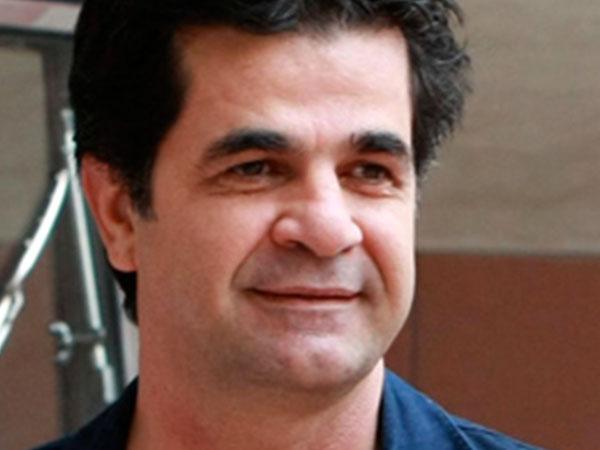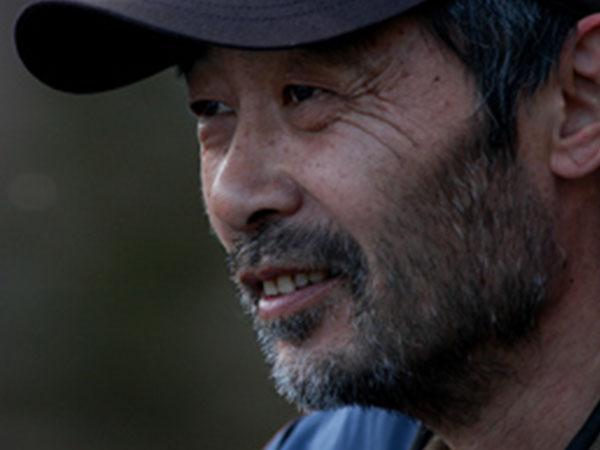2007 International Jury

Jury President Shabana Azmi has acted in more than 140 films, is a luminary of Indian Parallel (or arthouse) Cinema, and is renowned for the sensitivity of her portrayals in films such as Deepa Mehta’s Fire, Shekhar Kapur’s Masoom (Innocent) and Satyajit Ray’s Shatranj Ke Khilari (The Chess Players). For her role in Deepa Mehta’s Fire, Ms Azmi won the Silver Hugo Award for Best Actress at the 32nd Chicago Film Festival. She has won five Indian National Awards as Best Actress and numerous other Indian fi lm awards, including the International Indian Film Academy Lifetime Achievement Award in 2005. She is the only Asian actor to have had a retrospective of her films at the New York Film Festival (2002).
Ms Azmi is a noted activist who has been involved in the rights of women, development, reproductive health, and housing for the economically weaker sections, public health and HIV AIDS. In 1992 she was appointed Goodwill Ambassador for the United Nations Population Fund and, in 2006, she was awarded the Gandhi Foundation International Peace Award for her work with the slum dwellers of Mumbai.
She is a member of the National Integration Council, headed by the Prime Minister of India, a member of the National AIDS Commission (of India) and was nominated in 1997 as a member of the upper house of the Indian Parliament.
Ms Azmi has fought relentlessly against religious fundamentalism of all hues and is highly respected as a moderate, liberal Muslim voice. She is a visiting Professor at Ann Arbour Michigan and, among many tributes, was acknowledged by President Mitterand of France, along with 15 others including Mother Theresa and Nobel Laureate, Rigoberta Menchu on the bicentenary celebrations of International Human Rights in Paris.
View Profile
Kim Dong-ho is the founding Director of Korea’s world renowned Pusan International Film Festival, and is also currently the Vice Chairman of NETPAC, the Network for Promotion of Asian Cinema. Mr Kim has been awarded many cultural medals in recognition of his achievements and efforts in the cultural development in the Republic of Korea as well as in the international society. In 2000 he was awarded a Busan Culture Award and later the same year was acknowledged with a Chevalier de l’ordre des Arts et de Lettres from the French government. In 2006 he received the Deauville City Medal from Deauville City in France.
Since 1997 Kim Dong-ho has served on the juries of many International Film Festivals including Rotterdam (as Jury Chairman), India, Buenos Aires, Las Palmas, Venice (as Jury Chairman for the NETPAC Award), Singapore, Seattle, Bangkok, Hawaii and Sochi, in Russia. Prior to founding the Pusan International Film Festival, Mr Kim majored in Law at the Seoul National University and received an MA in Administration at the Hanyang University. He had consecutively fi lled various government posts at the Ministry of Culture and Tourism (formerly known as Ministry of Culture and Information) for 27 years.
He also served as president of the Korean Motion Picture Promotion Corporation and at the Seoul Art Center. He worked as the Vice-Minister at the Ministry of Culture and Tourism. His recent book, ‘History of Korean Cinema Policy’ (written by Kim Dong-ho et al) was published in 2005.
View Profile
Jafar Panahi has already received 52 prestigious international and national awards. Born in Mianeh in Iranian Azerbaijan, Jafar Panahi is a graduate of filmmaking from the IRIB College in Tehran. After directing five short films and acting as an assistant director for some acclaimed directors, like Abbas Kiarostami in Through the Olive Trees, Panahi made his debut feature, The White Balloon in 1995, which turned out to be the event of Cannes `95. The film won three awards, including the prestigious Camera d’Or and was sold widely to many territories. His second film, The Mirror received six international awards as well.
Jafar Panahi was decorated as Chevalier des Art et Lettres by the French Ministry of Culture in 1997. He directed his third feature film, The Circle in 2000, a controversial movie at home and a great success on the international scene. It was shown in Venice 2000 and received six awards, including the Golden Lion. The Circle is still banned in Iran although it has been shown in more than 40 countries and has collected 18 awards.
Mr Panahi’s Crimson Gold was shown in Cannes in 2003 and received the Jury Prize of Un Certain Regard. This film was also awarded the Golden Hugo of Best Film of the Chicago Film Festival in October 2003. It too has not yet been granted a screening permit in Iran. His latest film, Offside was shown at Berlin in 2006 and was awarded the Silver Bear and the Grand Jury Prize.
View ProfileIn the early 1970’s Nik Powell set up Virgin Records with Richard Branson. In the space of ten years they turned a small mail-order record operation into a multi-million pound conglomerate. In 1982 Powell formed Palace Video with Stephen Woolley, proprietor of the Scala Cinema, followed by Palace Video, Palace Pictures, and then Palace Productions, soon establishing each as highly regarded entities within the film distribution and production industry.
Powell has acted as Executive Producer on all of Palace’s productions including Neil Jordan’s Company of Wolves; Oscar nominated and award-winning Mona Lisa, which introduced Neil Jordan and Bob Hoskins to the international market; and Michael Caton-Jones’ Scandal, starring John Hurt. Other productions included Neil Jordan’s The Crying Game for which Powell was the sole executive producer. This was one of the biggest British independent films at the box office, taking over $65 million at the US box office alone. Nominated for six Oscars, including ‘Best Picture’,
Neil Jordan won the Oscar for ‘Best Original Screenplay’. Powell and Woolley’s new company Scala produced Backbeat, The Neon Bible, Fever Pitch, B Monkey, Welcome to Woop Woop, and Twenty Four: Seven, which won the international critics FIPRESCI prize as well as a ‘Pierrot’ Award at the Venice Film Festival. Little Voice, starring Michael Caine, Ewan McGregor, Jane Horrocks and Brenda Blethyn, won the ‘Best Actor’ Golden Globe, was nominated for the ‘Best Actress’ and ‘Best Supporting Actress’, and went on to become the highest grossing British film of 1999 in the UK. Other productions include Last Orders, which premiered at the 2001 Toronto Film Festival, and Scala’s first animated feature, Christmas Carol—The Movie. He executive produced Calendar Girls, and Stoned. Nik’s last production was Ladies in Lavender.
Nik Powell is Director of the National Film and Television School, Chairman of Scala Productions, Vice Chairman of the board of the European Film Academy, previous Chairman of EFA and host of the European Film Awards. He is Vice Chairman of the BAFTA Film Board, member of the BAFTA Board of Trustees; Council Member of BAFTA (British Academy of Film and Television Arts); member of BAFTA Film Committee; Member of the US academy AMPAS (Association of Motion Picture Arts and Sciences); Director of the board of the Northern Ireland Film and TV Commission, Member of the council of PACT (Producers Alliance for Cinema and Television); Member of British Screen Advisory Council; Member of European Producers Club; and Vice Chairman of the GEECT Board.
View Profile
Tian Zhuangzhuang is one of the leading figures of the ‘Fifth Generation’. His third feature film Horse Thief (1985) won large audiences in Europe and North America, and is now seen as one of the cornerstones of ‘Fifth Generation’ filmmaking: a modern classic. He has been in and out of trouble with the authorities for most of his career (not least for being the only film industry signatory to a 1989 open letter to the government, calling for the release of political prisoners) and he was ‘black-listed’ for a year after his film The Blue Kite won the Grand Prix at the 1992 Tokyo International Film Festival.
The son of well-known film actors, he was born in Beijing and at age 14 when Mao launched the Cultural Revolution, he was active as a young ‘Red Guard’ before being sent to Jilin Province for ‘reeducation’ at the hands of the local peasantry. He escaped from Jilin by joining the army, and served as a trainee cinematographer on several agricultural documentaries. When the Beijing Film Academy re-opened in 1978, he passed the exam to enter its Directing Department—and co-directed the student tape Our Corner (1980), the first sign of the coming ‘new wave’ in Chinese cinema. On graduating in 1982, he co-directed a feature for children.
Between 1994 and 1997 he ran the company Pegase within Beijing Film Studio and produced four features by young directors; he also acted in one of them, How Steel is Forged, directed by Lu Xuechang. In 2002 his film—Springtime in a Small Town won the San Marco Prize at the 59th Venice International Film Festival. In 2003, he founded BDI Films Inc. in Beijing, majoring on HD films for a young generation of directors. Also in 2003 he directed his first documentary film—Delamu, and in 2006 he finished his new feature —The Go Master.
View ProfileThe Asia Pacific Screen Academy expresses its respect for and acknowledgement of the South East Queensland Aboriginal and Torres Strait Islander communities. We pay our respects to the Traditional Owners of country, including the custodial communities on whose land works are created and celebrated by the Asia Pacific Screen Awards. We acknowledge the continuing connection to land, waters and communities. We also pay our respects to Elders, past and present. We recognise the integral role Aboriginal and Torres Strait Islander and First Nations peoples continue to play in storytelling and celebration spaces.
